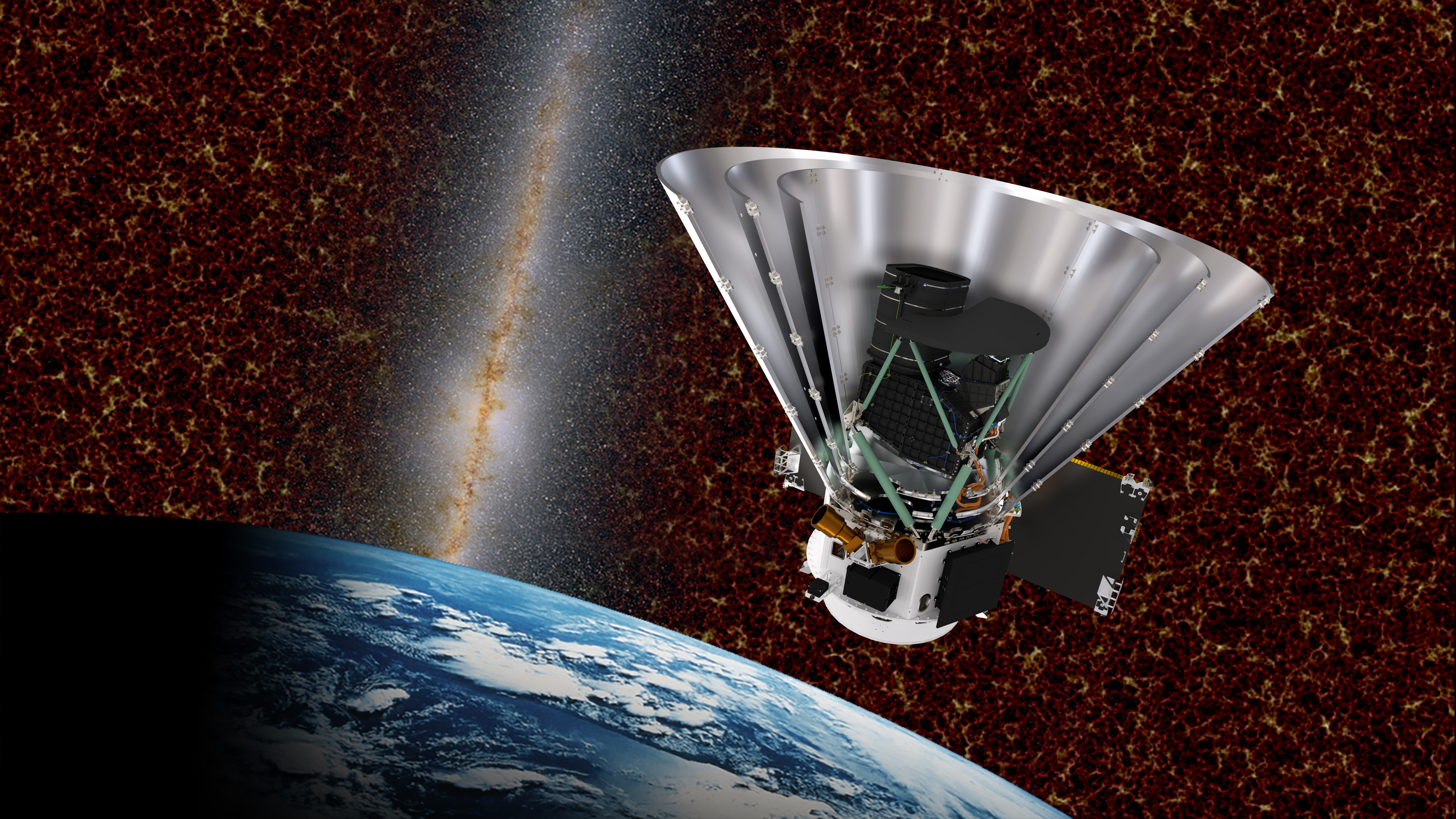Does that sentence perhaps give you a bit of a headache? I find myself scratching my head in wonder trying to imagine it. I seriously think astronomers have all the fun! Let’s look at that fact again: A mere billionth of a trillionth of a trillionth of a second after the Big Bang, our universe expanded dramatically — a trillion-trillion fold. This phenomenon is known as inflation and has apparently traumatised many a high-school student having to work out inflation rates. As Jamie Bock explains: And that expansion expanded tiny fluctuations smaller than an atom to enormous cosmological scales that we see today traced out by galaxies. Jamie Bock is SPHEREx's principal investor based at CalTech.
What’s so special about this telescope and its mission? It’s capacity and what it hopes to find out. In short, it can look really wide and really far/deep, and it hopes to find out lots of information on how we came to be in existence. In short, it wants to know how we got here.
To do this, the telescope will gather data from over 450 million galaxies, as well as over 100 million stars in our own Milky Way galaxy. Four times over a two-year period the telescope will take a picture of the complete sky, literally giving us the big-picture view of the universe (using 102 colour bands). Through this scientists hope to discover further information on what got the ‘big bang’ started and how we came to be. It will also be searching our Milky Way for the building blocks of life (such as water and carbon dioxide molecules).
Science sits with a puzzle. We know that nothing cannot produce something, but at this stage of the game that is what science is sitting with in terms of the origin of the universe. Just under 14 billion years ago (13.8 to be more precise) we have what has come to be called the Big Bang (I like to call it the RECS moment – my personal acronym for Rapid Expansion of a Created Singularity – but I have a suspicion that will never become mainstream😊). Our universe is currently about 92 billion light years across in terms of size. I’m not going to even try and fathom that!
The significance of this realisation of the universe having a beginning cannot be overestimated, since the realisation that the universe had a beginning was only discovered in the last century (thanks to Edward Hubble), verifying the ancient text of Genesis that begins with the words “In the beginning…”
But what brought about that first initial singularity, or who or what planted that seed within which was condensed time, space and matter and resulted in what we see today?
Isn’t it something that in the twenty-first century humanity is still looking for the answer that every child sooner or later asks: where did we come from? It reminds me of the joke where a child first asks his dad and he explains the theory of evolution. The child then goes to his mom and she explains that God made us. The child responds with “But dad said we come from monkeys…” To which the mom replies “He’s speaking about his side of the family…”
Which brings me to an interesting fact: the book of Genesis remains a stumbling block to those who are considering the claims of Christianity. To be more specific, believing that the earth was created in six literal 24 hour days, about six thousand years ago, is what folk have a problem with, since all the available evidence tells a very different story. This has also contributed to the false notion that there is somehow a conflict between faith and science. The relationship between faith and science has a long and somewhat tumultuous history, and the debate still continues to this day. My exploration of this debate has led me to understand that if you do science correctly, and read Scripture correctly, you will find harmony and not conflict. There is unfortunately conflict (I think disagreement is fine, but needs to be constructively engaged, not fought) within the body of Christ regarding the interpretation of Genesis and science (and it tragically does get quite nasty). In short, within the body of Christ we have scientists that hold to a young earth and universe (for example Institute for Creation Research), others that regard the Big Bang to be the best explanation but not holding to evolution (but recognising an old earth – see Reasons to Believe), and other scientists who believe God used the methodology of evolution but clearly guided it (BioLogos). To be clear, there is grace displayed between scientists representing different viewpoints, but unfortunately there is also conflict displayed in other circles. Apart from that unfortunate conflict, the true conflict is between faith and scientism, which is a way of thinking that says science alone has all the answers. As Block and Freeman explain: “This is the ideology of scientism – an optimistic faith in the power of science to resolve the mysteries of the world, a form of science that dismisses God, who entered our world, as a fairy tale.”(ii) Galileo liked to refer to the book of nature and the book of Scripture, and since both have their source as God, why would there be conflict? In other words, nature reveals that there is a God, and Scripture reveals the God who is there.
Back to the SPHEREx. I can’t wait to see the pictures, and cannot wait to hear how scientists make sense of the data. One thing is certain, the data is going to reinforce the truth of Psalm 19 – a psalm which testifies to both the book of nature (The heavens declare the glory of God; the skies proclaim the work of his hands – see v1-6) as well as the book of Scripture (The law of the Lord is perfect, reviving the soul. The statutes of the Lord are trustworthy, making wise the simple…see v7-11). It will confirm what astronomer Robert Jastrow wrote:
The Servant King by Graham Kendrick: hands that flung stars into space, to cruel nails surrendered. That is worth pondering this Easter, that the God of Space is the God of Grace.
Since this telescope is bound with the constraints of space and time, I gather it isn’t going to be able to discover the moment before the initial ‘big bang.’ But I have fun in my imagination imagining what it will discover if it did. I have a sneaky suspicion it’s not so much what they will see (since God is Spirit), but what they will hear: an authoritative, loving, joyful, giddy-with-excitement voice exclaiming:
“Let there be light!”

